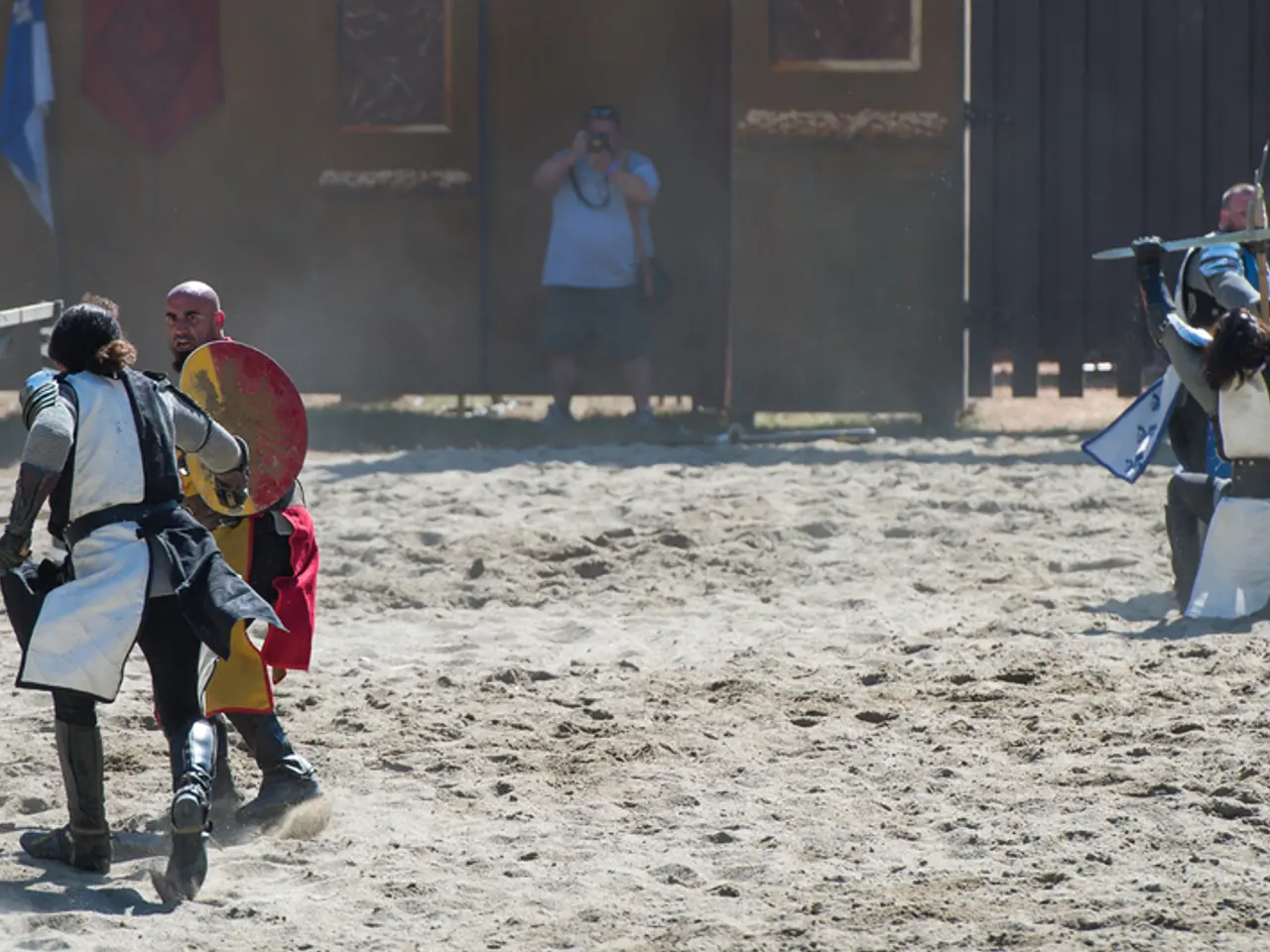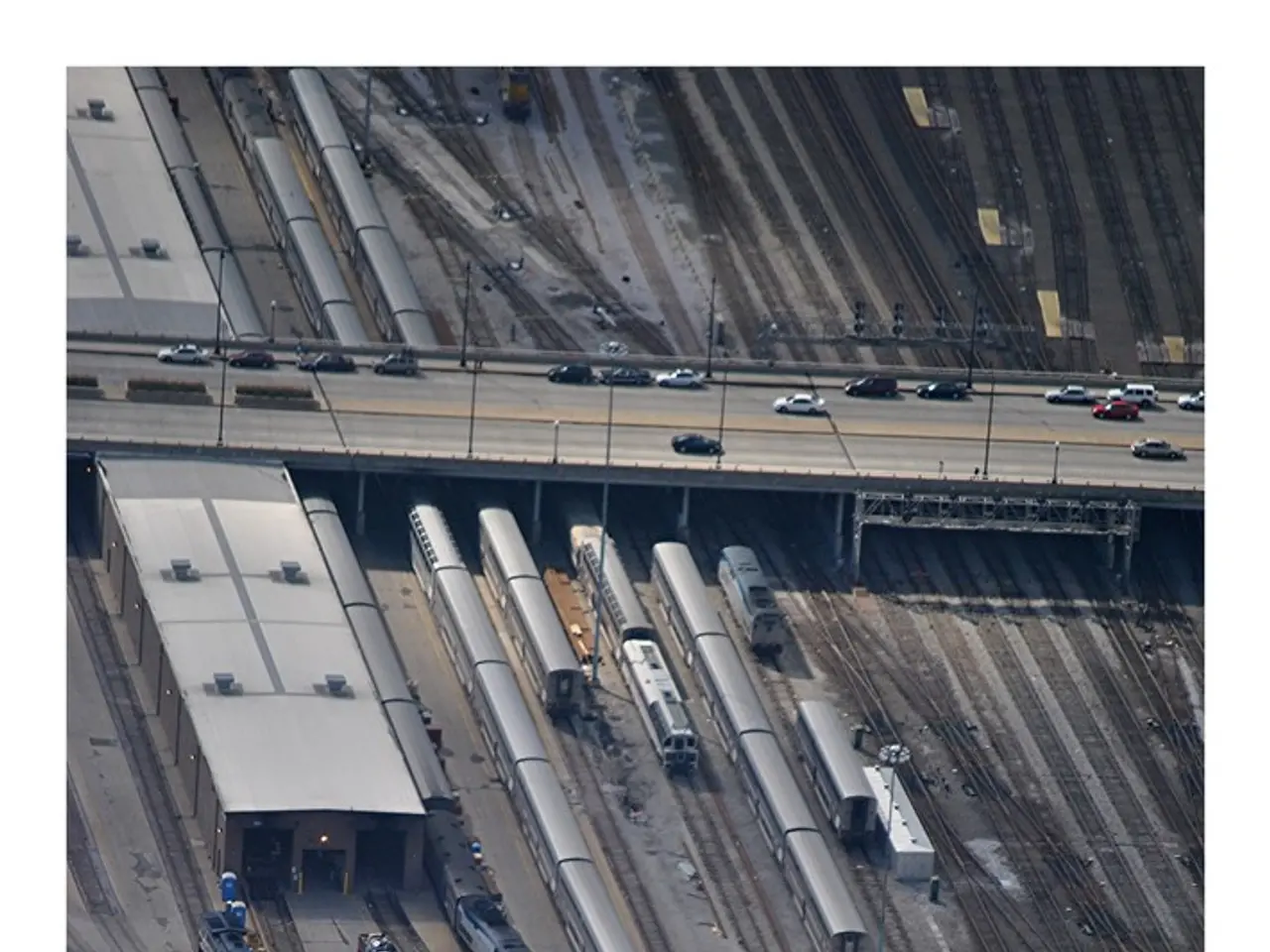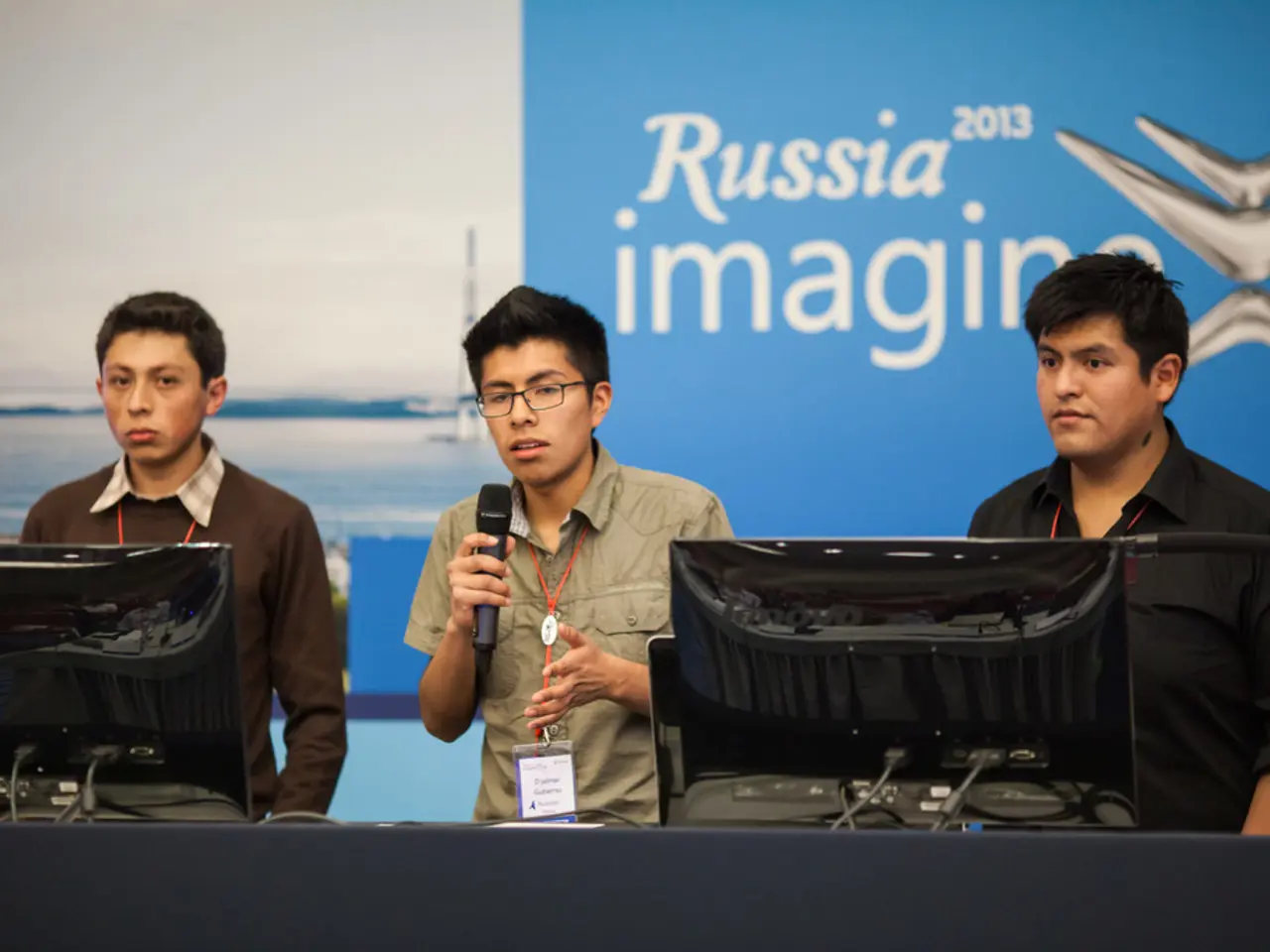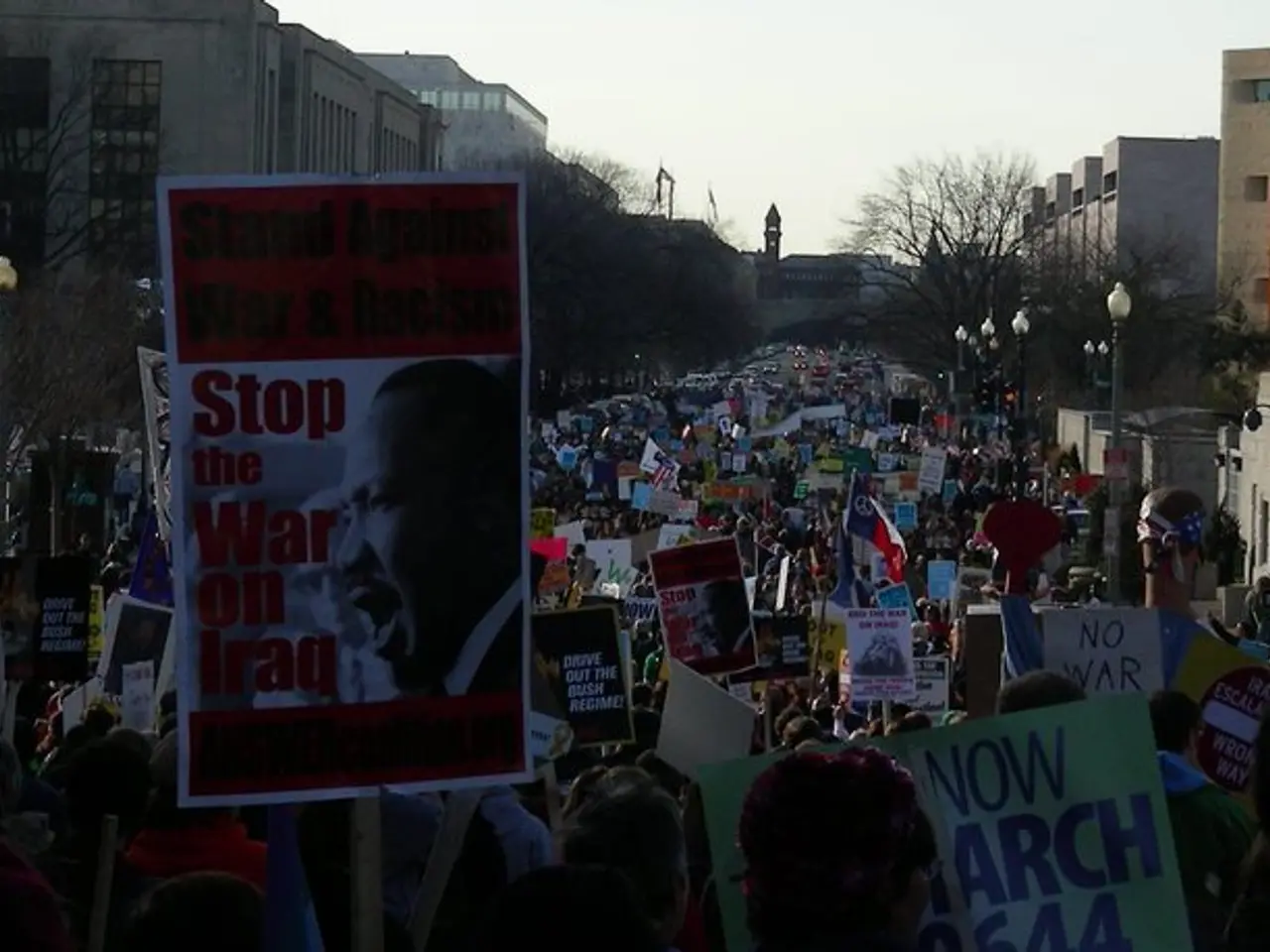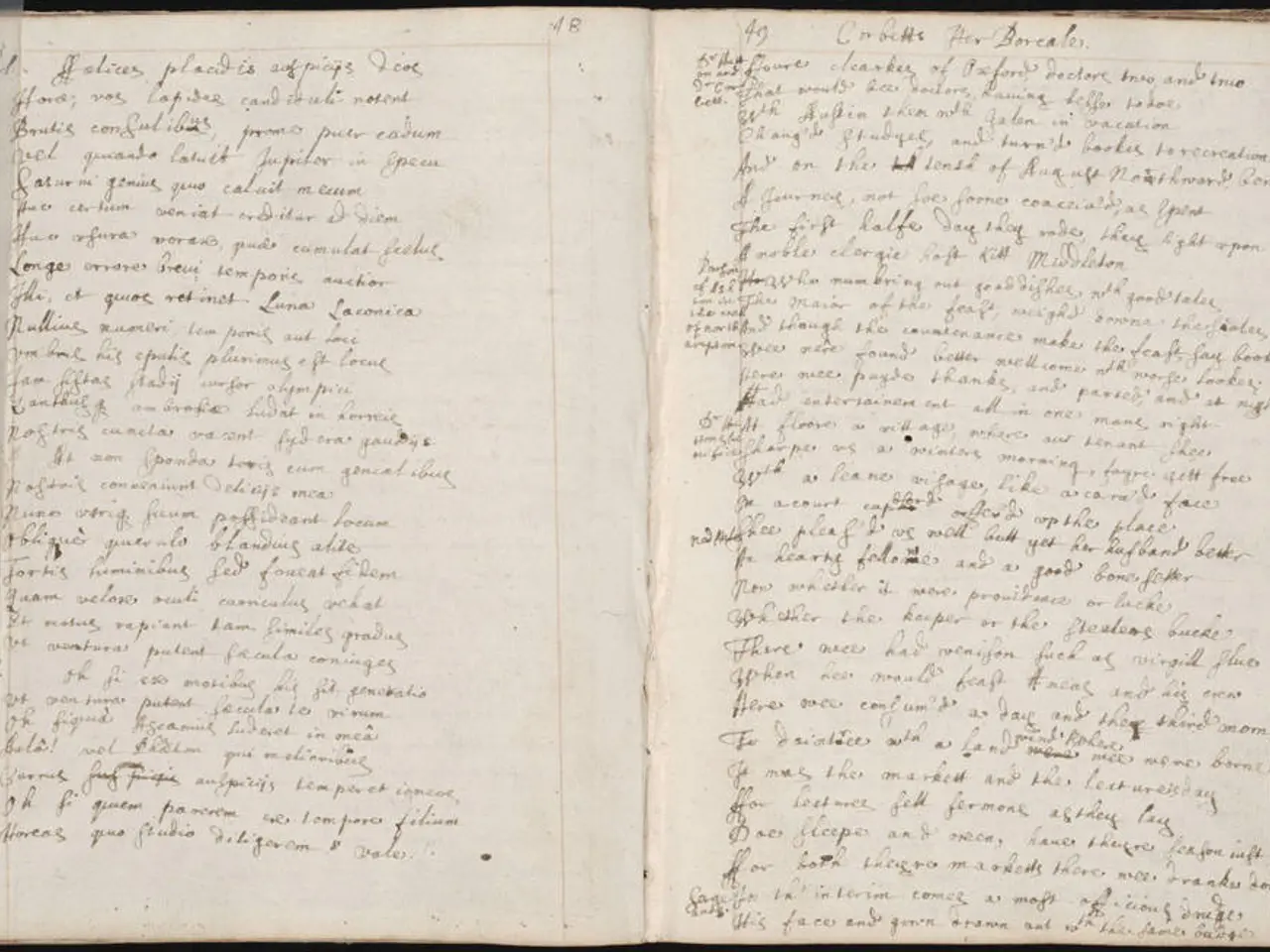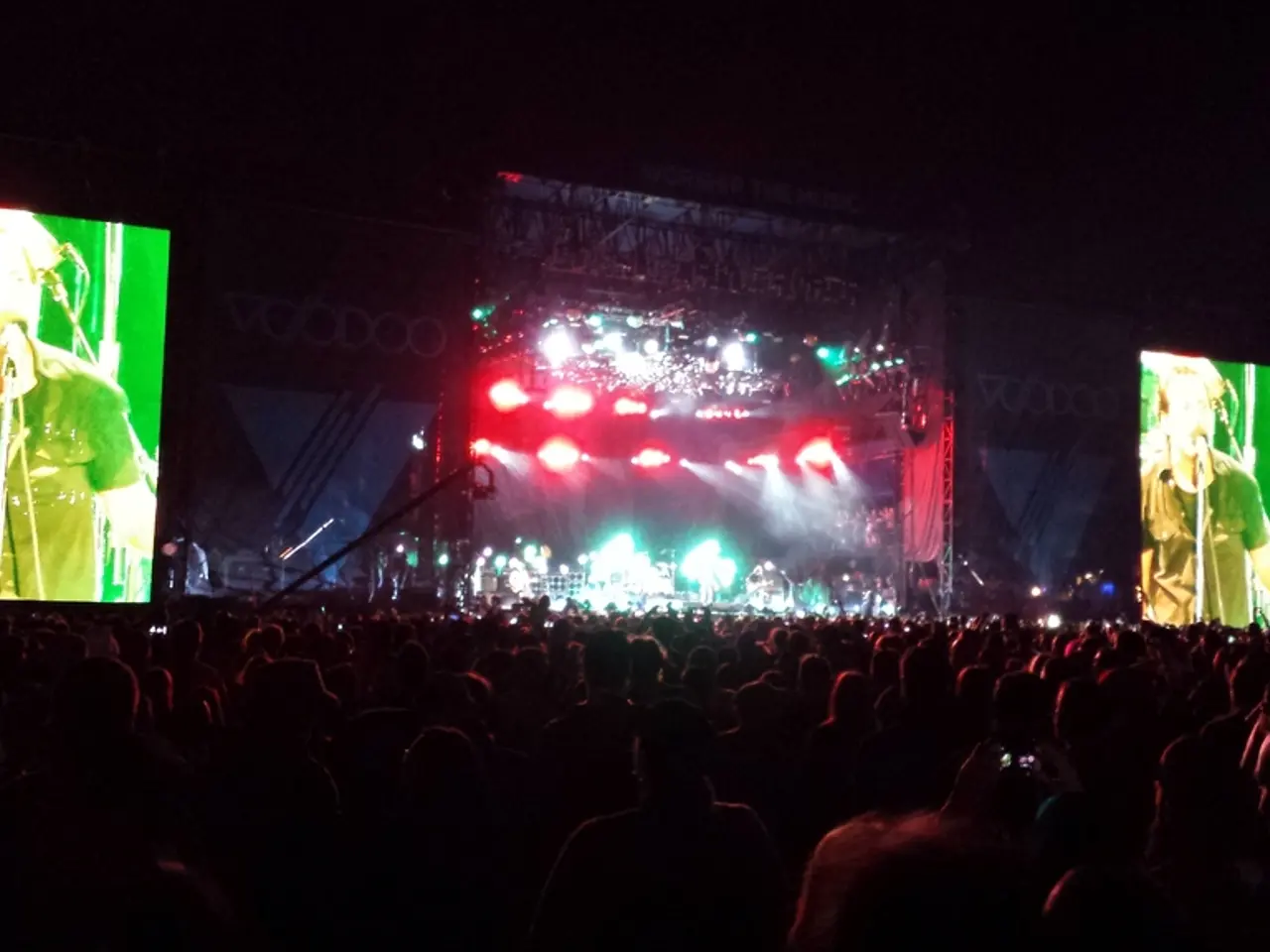Armed truce between Thailand and Cambodia successfully enforced - Truce Maintained between Thailand and Cambodia
After days of intense fighting along their shared border, Thailand and Cambodia have agreed to an immediate and unconditional ceasefire, effective as of midnight local time. This marks the first significant military engagement between the two countries since 2011.
The clashes, which resumed on July 24, 2025, near the Ta Muen Thom Temple in Surin province, Thailand, have had devastating humanitarian consequences. According to reports, Cambodia's rocket and artillery attacks killed 14 Thai civilians, including children aged 8 and 15, and wounded 31 others. The violence also damaged civilian infrastructure, including hospitals, supermarkets, houses, medical facilities, religious sites, and cultural sites.
In response, Thailand evacuated over 100,000 people from border areas and closed at least 852 schools and 7 hospitals to protect civilians. The Thai military also reported "disturbances and use of weapons" in several areas, to which they "responded appropriately."
The escalating dispute caught the attention of the international community, with the US President Donald Trump intervening since the weekend. Trump called for a quick ceasefire in telephone calls with both heads of government and has been referred to as the "President of Peace."
The heads of government of Thailand and Cambodia met in Malaysia, with Malaysian Prime Minister Anwar Ibrahim, who holds the chairmanship of the Southeast Asian regional grouping ASEAN this year, facilitating the discussions.
However, the ceasefire was not without incident. The Thai army reported violations of the agreement by the Cambodian side in the morning. Heavy fighting initially stopped with the implementation of the ceasefire, but the exact cause of the escalation remains unclear.
Despite the challenges, both Trump and the heads of government of Thailand and Cambodia have claimed victory. Trump wrote on his Truth Social platform that both countries have achieved a ceasefire and peace thanks to his intervention.
It's important to note that the border conflict between Thailand and Cambodia has been ongoing for decades. The recent escalation has raised concerns about the safety and well-being of civilians in the region. Human Rights Watch has called for both governments and the international community, including the UN Security Council, to enforce international humanitarian law and prioritize civilian protection amid ongoing hostilities.
Representatives from the USA and China also participated in the talks, adding an international dimension to the negotiations. The calm on the border, as reported by the Cambodian Ministry of Defense, offers a glimmer of hope for a peaceful resolution to this long-standing conflict.
The Commission, being part of the international community, has also been involved in the preparation of the draft budget for the European Union, focusing on providing humanitarian aid and ensuring the safety of civilians in war-and-conflicts zones such as the ongoing border dispute between Thailand and Cambodia. This includes addressing the general news of the devastating humanitarian consequences, violation of the ceasefire agreement, and the need for civilian protection amid ongoing hostilities, as well as the political implications of the conflict and the role of world leaders like the US President Donald Trump in mediating peace.
